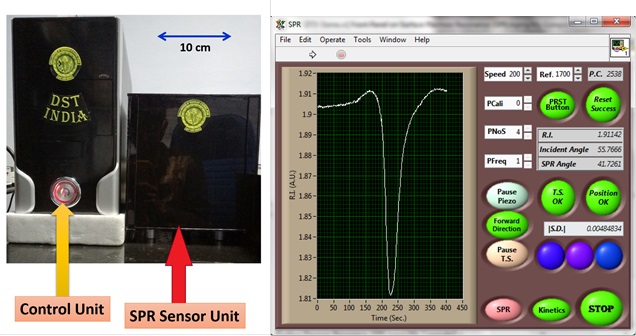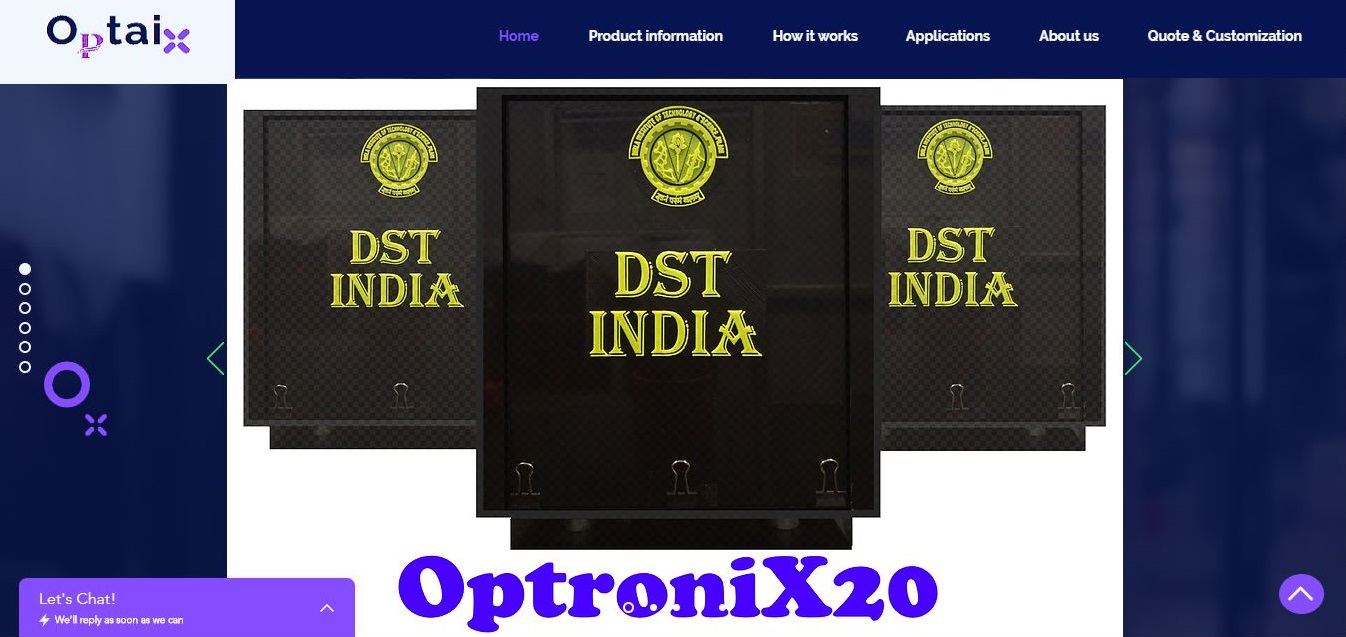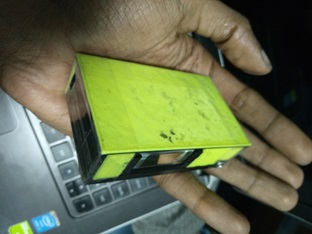Prof Raj Kumar Gupta was born and raised in Kolkata and completed his post-graduation in Physics from the University of Calcutta in 1999. He went on to complete his PhD in Physical Sciences at the Raman Research Institute, where he gained expertise in instrumentation, particularly in electromagnetics/optics. During his PhD, he developed equipment for studying ultrathin films of organic and polymer films, which demonstrated a trans-gauche phase transition in fatty acid films. He joined BITS Pilani as a faculty member in Physics in 2005, and also teaches Computer Science courses like image processing and pattern recognition. He served as the Head of the Physics Department from 2018-2020 and is currently the Associate Dean of Sponsored Research and Consultancy Division at the Pilani Campus. He is married to Prof Manjuladevi V., also a faculty member at Pilani Campus, and has a daughter and a son.
During the 2000s, starting research at BITS Pilani was difficult as the institute was mainly focused on teaching and lacked funding for research. Despite unsuccessful attempts at securing funding, a professor convinced the Physics Department to apply for the UGC-SAP program, which led to the department's first project and the development of a lab to study the behavior of organic molecules/nanomaterials. The lab required instrumentation for surface plasmon resonance, which is challenging and costly. The professor collaborated with scientists across India and found that commercially available equipment was complex and expensive. In 2010, he proposed the development of the SPR instrument to the Department of Science & Technology, India (DST, India) under the Instrument Development Programme. He pitched for the development of a low-cost, field-deployable, and yet sensitive SPR instrument. He received the project for 3 years with a fund of ~ Rs 26 lakhs. In 2013, he demonstrated a lab prototype of the SPR instrument using a novel optomechanical scanning system. The instrument was low-cost, very sensitive, and portable to deploy in field measurement. He filed a patent on this in the year 2014 (2644/DEL/2014). To take the technology to the next level, DST India has awarded the 2nd Phase of the project for a duration of 2 years with a funding of ~Rs 56 lakhs. Prof. Gupta and his team upgraded the equipment. The equipment was validated and appreciated by the scientists of CEERI Pilani and Raman Research Institute, Bangalore. To date, Prof Gupta has published more than 65 research papers in international journals of repute, 8 book chapters, supervised 5 Ph.D. students, 1 patent (in progress), and executed several sponsored projects as PI (3) & Co-PI (2).
Current medical diagnostic tools for detecting tuberculosis have several issues including complicated operations, requiring specialized facilities, and being time-consuming. However, multichannel SPR technology can address these issues and has the potential for early detection of cancer. Professor Gupta is working with doctors in AIIMS Delhi to rapidly detect tuberculosis through this technology and is seeking to transfer the technology to Indian companies for commercialization. BITS Pilani is a growing research and development institution with a positive ecosystem for high-level research across various fields. Interdisciplinary research and the creation of centers for cutting-edge research should be prioritized, along with supporting idea development with minimal financial support.

Figure: Left: The SPR instrument developed using a novel optomechanical scanning system. Right: GUI-based fully computer control front panel for the SPR measurement.
Website of the developed instrument:https://www.sprsensors.org

Innovation: Handheld low-cost SPR device (patent to be filed)

You Might Also Like
- From BITS Pilani to Mercedes-Benz: A Journey of Passion, Design, and Innovation
- Shebin Hussain, EPC ECA Lead at TotalEnergies, reflects on how his time at BITS Pilani shaped his career
- From Boardrooms to Ballots: Srikanth Narasimhan’s Journey from Corporate Leader to Political Reformer
- Navigating Startups and Investments: Insights from Mr. Sundi Natrajan
- Trailblazing Success: Sudarshan Ravichandran’s Journey from BITS Pilani to Global Impact


 An Institute of Eminence
An Institute of Eminence






